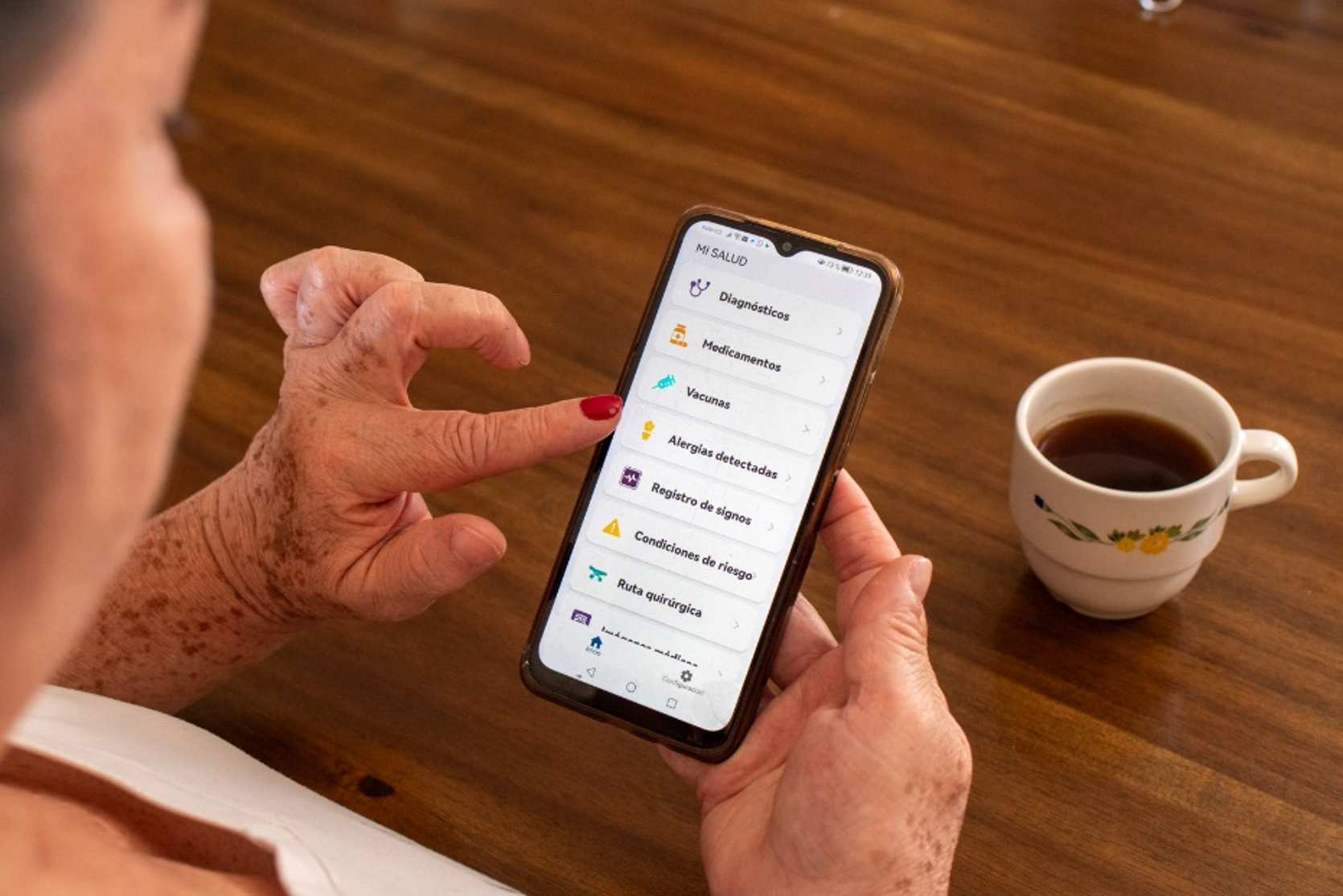/data-and-analytics-(dna)/data-exchange-(dex)/who-presence-in-countries--territories-and-areas.tmb-1920v.jpg?sfvrsn=f1146a2_2)
Transforming Costa Rica’s health system through digital health innovation
Stronger WHO country presence for a healthier and safer world
Joint Outcome 3.3.
Health information systems strengthened, and digital transformation implemented
Costa Rica, like many countries, faces the challenge of meeting growing health care demand with limited resources, a scenario that threatens the sustainability of health systems and progress towards universal health coverage. Information technologies have the potential to significantly enhance health care efficiency and maximize health outcomes, yet their full potential is often underutilized in both health care and public policy contexts. According to the State of Digital Health Report 2023, of the 67 participating countries surveyed in the Global Digital Health Monitor, 40% are in phase 3 of 5 in digital health maturity, while 50% report no digital health training for health care professionals. Costa Rica mirrors these challenges, with a maturity index at level 3, and faces key gaps in workforce, standards and interoperability, and strategy and infrastructure.
Costa Rica takes action, supported by PAHO/WHO
Costa Rica’s commitment to addressing these challenges led to the launch of the Roadmap for Digital Health 2023–2030, which was inspired by the Pan American Health Organization’s (PAHO) Plan of Action for Strengthening Information Systems for Health 2024–2030.

A health professional in Costa Rica uses the EDUS mobile application, enhancing health care delivery through digital tools and improving access to vital health information.
This roadmap focuses on four strategic pillars: governance, interoperability and infrastructure, digital literacy and change management, and cybersecurity. PAHO and the World Health Organization (WHO) provided critical support, offering strategic guidance, technical expertise and financial resources to ensure the successful implementation of these initiatives.
Digital health governance and policy development
To strengthen digital health governance, PAHO/WHO supported the creation of the Directorate of Digital Health and Transformation within the Ministry of Health. Support included the preparation and revision of numerous norms and regulations, including the use of PAHO’s toolkit in May 2024 to assess and strengthen the national legal framework for digital health. As a result, Costa Rica has accelerated the preparation or enactment of at least eight new decrees and pieces of legislation in the first year, including a national digital health act.
Digital health governance and policy development
PAHO/WHO has contributed by offering specialized courses through the PAHO Virtual Campus for Public Health, including topics such as interoperability standards and integrating telehealth into primary health care. These efforts were complemented by intersectoral initiatives on digital literacy for the health care workforce, led by the Ministry of Health in partnership with the Ministry of Science, Innovation, Technology and Telecommunications. Costa Rica has also made significant strides in user engagement, introducing digital platforms such as the Unique Window of Investment and the Single Digital Health Record (EDUS) digital application to facilitate access to digital health services.
Interoperability and infrastructure development
A key achievement has been the improvement of digital health infrastructure. PAHO/WHO support in applying the Information System for Health toolkit enabled Costa Rica to develop its interoperability architecture, allowing for seamless health data exchanges across the Ministry of Health, the Costa Rican Social Security Fund, the National Insurance Institute, the Institute on Alcoholism and Drug Dependence, and other key players. This infrastructure now supports system-wide digital prescriptions for psychotropic medications and antimicrobials, and digitalization of other services such as the digital monitoring of water sources and sanitation infrastructure. The country has also substantially upgraded and expanded equipment and connectivity.
Cybersecurity and technological advancements
Costa Rica has considerably strengthened its digital security measures, guided by PAHO/WHO’s toolbox for information security. Additionally, with PAHO/WHO’s support, Costa Rica is expanding telehealth capabilities, exploring artificial intelligence applications for health care decision-making, and making significant progress in data generation and developing indicators to measure health outcomes, among other advances. These technological advancements are central to building a more resilient, data-driven health system.
Results and impact
The tangible results of these interventions are evident. Costa Rica has made substantial progress in digital health governance, workforce development and infrastructure expansion. The implementation of interoperable systems has enhanced efficiency, enabling better coordination and decision-making. Furthermore, the country’s digital literacy efforts are increasing health care professionals’ capacity to deliver telehealth services, a critical tool for expanding access to care.
The implementation of Costa Rica’s Roadmap for Digital Health 2023–2030 has already yielded concrete advancements in governance, workforce training and system interoperability. With PAHO/WHO’s cooperation, the country has enacted key legislative reforms, strengthened cybersecurity and expanded digital health services, including telehealth and electronic prescriptions. Sustained investment and cross-sector collaboration will be crucial to scaling these initiatives, addressing remaining gaps in infrastructure and workforce capacity, and ensuring long-term sustainability. As Costa Rica continues refining its digital health ecosystem, its progress offers valuable insights for other countries navigating similar digital transformation efforts in the Americas and beyond.
